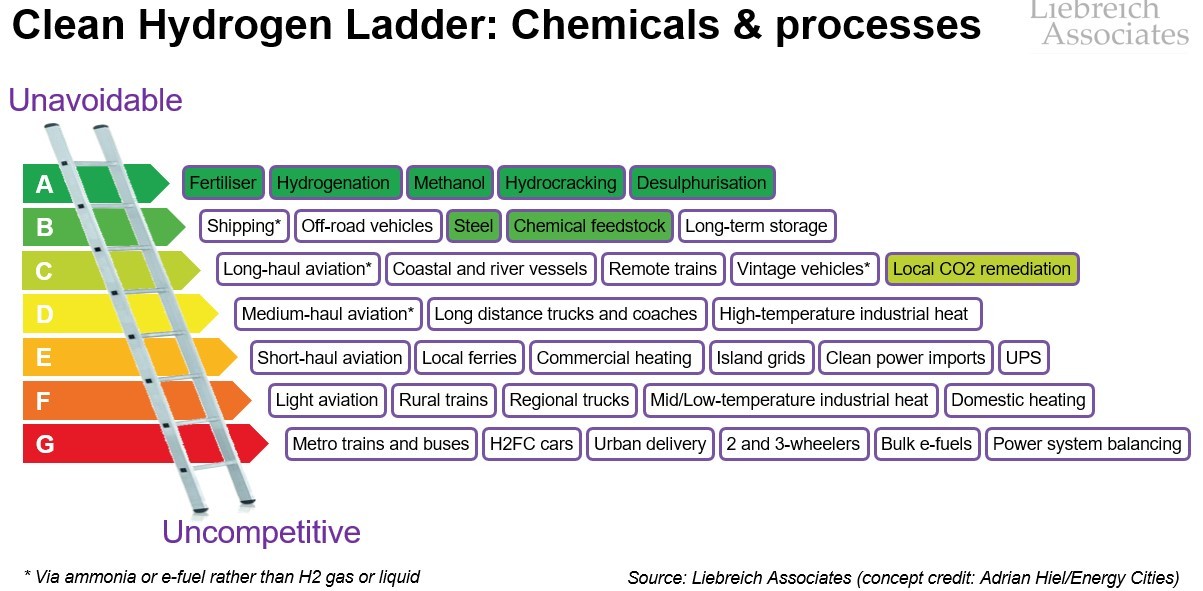The Perils of Protectionism
 A trade war may deliver a short-term boost to domestic companies, but the cleantech industry as a whole would suffer. A version of this piece appeared in Bloomberg Businessweek, 7 October 2010.
A trade war may deliver a short-term boost to domestic companies, but the cleantech industry as a whole would suffer. A version of this piece appeared in Bloomberg Businessweek, 7 October 2010.
Take a Western world struggling to escape from recession and high unemployment. Add an industry that’s growing rapidly and absorbing more and more government support. Sprinkle on some cut-price competition, notably from China, and what do you get? A growing chorus of complaints around the world about unfair trade practices in the clean energy sector.
In Germany, critics have been protesting for more than a year that the country’s feed-in tariff—a premium rate paid to producers of solar power—also benefits Chinese exporters of solar cells and modules. In the U.S., Senator Charles E. Schumer (D-N.Y.) has been complaining for almost as long about the way grants from the country’s 2009 economic stimulus package are funneling business to non-U.S. companies that can secure cheaper turbines and finance. To guard against this situation, Ontario’s 2009 Green Energy Act requires that local goods and services make up at least 50 percent of the cost of wind and solar projects, a proportion that is set to rise to 60 percent in 2011.
Now it looks as if the rumblings of discontent are taking a more serious turn. On Sept. 13, Japan complained to the World Trade Organization about Ontario’s local-content policy. The same month, the United Steelworkers (USW) in the U.S. filed a 5,800-word submission with the U.S. Trade Representative, citing “protectionist and predatory practices utilized by the Chinese to develop their green sector at the expense of production and job creation here in the U.S.”
How strong a case do these complainants have? China has certainly done more than any other country to establish a leading position in clean energy. It started by creating demand, adopting its first renewable-energy law in 2005 and ensuring that its domestic utilities captured the bulk of the resulting projects. It supplemented this with a raft of industrial policy measures meant to support the development of its supplier base—cheap loans, tariffs on imported wind turbines, aggressive domestic content rules, and so on. Nothing so unusual there: Developed countries that profess allegiance to free trade have resorted to some of the same tricks.
Recently, however, the playing field has begun to tilt. So far this year the China Development Bank has offered $32.2 billion in low-interest loans to the country’s solar and wind manufacturers. Those outfits haven’t yet landed big contracts in Europe or the U.S., but armed with export credits that the West is hard-pressed to match, they’re making inroads into emerging markets. And Beijing, which controls most supplies of rare-earth minerals, essential for so many clean-energy technologies, is moving to restrict exports—a worrisome prospect for the industry.
So the complaints of protectionism have some justification. Would it be wise, therefore, to take dramatic action? A clean energy trade war would put the brakes on China’s headlong drive into the sector. Its makers of photovoltaic solar panels and turbines would lose access to their most significant markets, Europe and the U.S., potentially driving large numbers of them out of business. Such a scenario might benefit populist politicians campaiging on promises of bringing jobs back from China. The share prices of companies such as General Electric (GE) and Vestas Wind Systems also might get a temporary boost.
However, all of this would be bad news for clean energy’s long-term health. In the absence of foreign competition, domestic manufacturers would demand higher prices. Higher clean energy costs, in turn, would make international accords on emission reductions more difficult to reach than they already are. For developed countries to meet 2020 targets for renewable energy use and emission reductions, they are going to need all the cheap turbines and solar modules they can get. Meanwhile, Beijing, denied access to global markets, might reassess its huge investment in clean energy. It could well decide to give even greater priority to old-fashioned, coal-fired development.
The Obama Administration has until Oct. 24—just eight days before the mid-term congressional elections—to decide whether or not to champion the USW’s case. The clean energy industry needs to avoid getting into a sector-specific trade war. Instead, it should push for the liberalization of trade and exchange rates and for aggressive but fair competition.
At the Bloomberg New Energy Finance Summit in London in March, Peter Brun, senior vice-president at Vestas, the world’s largest maker of wind turbines, put forth a vision of a sustainable-energy free trade area to ensure the most competitive worldwide market for clean energy products, services, and commodities. Eliminate subsidies. Eliminate tariffs. Agree on technological standards. Now there’s a battle cry worth heeding
Terms of use: photos and other media may be used exclusively for the purpose of publicising an upcoming or past event involving Michael Liebreich, or to illustrate an article written by him. Their use must be accompanied by a clear indication of copyright in the following form:
© Liebreich Associates/name of photographer. Photos or other media downloaded in this way remain the property of Liebreich Associates Ltd. Any infringement of these terms of use may result in legal action by Liebreich Associates Ltd or by the respective photographer or rights holder.





